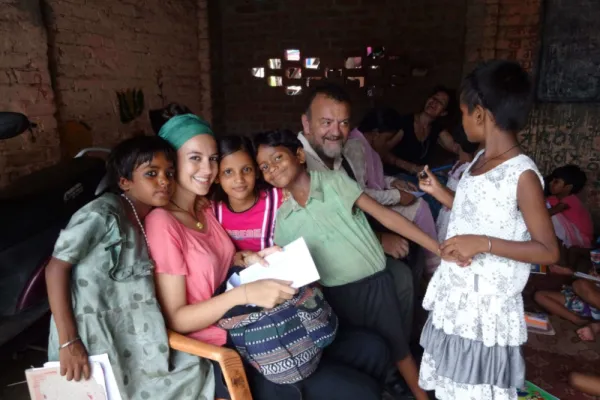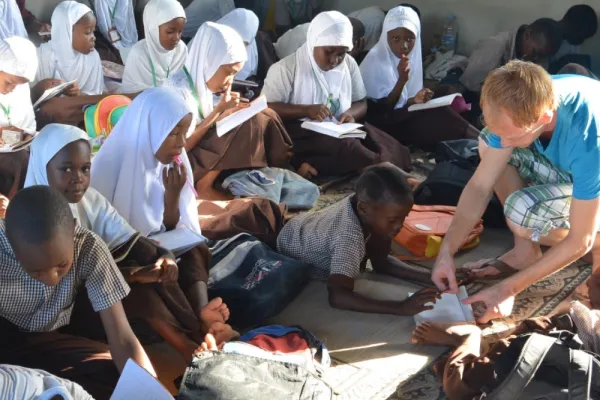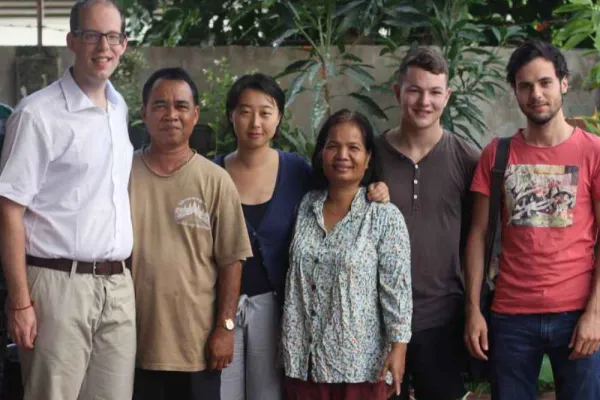Book with complete peace of mind with our Flexible Booking Policy
Simple Money Saving Tips for Volunteering Abroad
-
{
-
- |
-
Read time
7 minutes

Volunteering abroad is one of the best ways to explore the world and do something meaningful at the same time. But let’s be honest, travel comes with costs, and it’s easy to feel unsure about how much to spend or where to start. The good news is, you don’t need a huge budget to make it happen.
With the right planning and a few smart choices, you can keep things simple and affordable. This guide will walk you through how to manage your money before, during, and after your trip. From budgeting and booking flights to saving on everyday expenses, these tips are here to help you focus on what really matters… showing up, helping out, and making the most of every moment.
Money Tips for Planning Your Trip
Understand What’s Included in the Program Fee
Before you set your budget, it’s important to know exactly what your program fee covers. Many volunteer programs include the essentials like accommodation, meals, airport pickup, and on-site support. These are big parts of your experience, and having them organized ahead of time takes away a lot of stress.
At the same time, some things are usually not included. You will likely need to cover your own flights, travel insurance, visa fees, personal spending, and any extra activities like weekend trips. Knowing this upfront helps you avoid surprises and gives you a clear picture of what your total costs might look like.
Take time to read the full program details and don’t hesitate to ask questions. A little clarity now will make the rest of your planning much easier.
Create a Realistic Budget Before You Go
Once you know what is covered by your program, it is time to figure out everything else you will need to plan for. A clear budget helps you stay on track and enjoy your trip without money worries in the back of your mind.
Start by writing down the major expenses: your program fee, roundtrip flight, travel insurance, and visa. Then add your estimated spending for things like meals not included in the program, weekend trips, transportation, and small daily costs like snacks or laundry.
It also helps to set aside an emergency fund for unexpected needs. Even a small extra amount can give you peace of mind in case something changes during your trip.
The goal is not to plan every cent, but to get a good sense of what you need. When you have a budget that feels comfortable, you can focus less on counting coins and more on the experience itself.
Book Flights Early and Compare Prices
Flights can be one of the biggest costs in your volunteer trip, but with a little planning, you can save a lot. Start looking for flights as early as you can. Prices tend to be lower when you book a few months in advance, especially if you are traveling during a busy season.
Use comparison tools like Google Flights or Skyscanner to explore different options. Try flying on weekdays instead of weekends, and check nearby airports in case they offer better deals. If your dates are flexible, you can often find cheaper tickets by shifting your travel by just a day or two.
It also helps to clear your browser cookies or search in private mode. Some websites adjust prices based on your search history, and this small step might keep you from paying more than you need to.
Taking the time to compare your options can free up money for things you care about — like exploring a nearby town, joining a local tour, or extending your stay.
Fundraise for Your Volunteer Trip
Raising money for your volunteer trip might feel overwhelming at first, but there are several simple, effective ways to build support. With a little planning and a clear message, you can gather the resources you need and inspire others to join your mission.
Start by thinking about your own network. If you're a student, speak with your university or college department. Some institutions offer funding for service learning or international engagement, and even if they don't, they may be able to connect you with other opportunities.
Community groups are another great place to begin. Religious organizations, cultural centers, and local clubs often provide grants or donations for meaningful causes. Let them know what you’re planning and why it matters. People are more likely to support you when they feel part of your story.
Local businesses or charities may also be willing to help, especially if you write a short, sincere letter explaining your trip and the impact it will have. Focus on your goals, what you hope to learn, and how it connects to a bigger purpose.
Online fundraising platforms make it easy to reach more people. Sites like GoFundMe, FundMyTravel, and similar tools let you create a page, tell your story, and collect donations. You can add photos, update your progress, and share the link with friends, family, and social networks.
Most importantly, don’t be afraid to ask. Fundraising is about community, purpose, and passion. When people see your dedication, they’re often excited to help — and your journey becomes part of theirs too.

Smart Ways to Save Money While Volunteering Abroad
There are plenty of simple ways to keep your costs low and still have an amazing, rewarding experience. With a bit of planning and some smart choices along the way, you can volunteer without overspending.
Here are some practical tips to help you save money during your trip:
1. Focus on the essentials
Spend where it counts. Focus on things like housing, insurance, local transport, and food. These are the core parts of your experience, and cutting corners here could affect your safety or comfort. Other costs, like language prep or orientation sessions, might be things you can do on your own beforehand.
2. Look for simple, low-cost accommodations
If your program doesn’t include housing or you want to extend your stay, ask locals about guesthouses or homestays. Staying in a modest place or with a host family can cut your expenses and offer a deeper cultural experience.
3. Eat local, not touristy
Skip the hotel meals and western restaurants. Local food is usually more affordable, and when you eat with your host family or at nearby markets, you’ll enjoy traditional flavors and spend much less.
4. Use public transport whenever possible
Taxis can add up fast. Buses, shared vans, or tuk-tuks cost a fraction and offer a better window into daily life. Ask your local coordinator which options are safe and reliable.
5. Travel in a group
Joining other volunteers for weekend trips, meals, or shared housing can lower your overall spending. Many tour operators also offer discounts for groups, offering another reason to team up.
6. Shop only at the end of your trip
Wait until the final days to buy souvenirs or gifts. You’ll avoid impulse buys and have a better idea of what’s truly special and what can fit in your luggage. This also helps prevent overpacking and extra baggage fees.

Save on Weekend Travel and Extras
One of the best parts of volunteering abroad is exploring your destination during your time off and there are plenty of ways to do that without spending too much.
Traveling with fellow volunteers can help lower costs on everything from transportation to lodging. Splitting a room, sharing rides, or booking group tours can reduce expenses and often make the experience more fun.
Stick to local experiences instead of pricey tourist packages. Public beaches, nature hikes, temples, markets, and cultural festivals are often free or low-cost and give you a more authentic feel for the place you're in.
Eat where the locals eat. Not only is it usually cheaper, but it also gives you a chance to try traditional dishes and support small businesses. Avoid places that advertise to tourists or are located right next to major attractions as those often come with marked-up prices.
Use public transportation or walk when you can. Buses, tuk-tuks, or metro systems are budget-friendly and a great way to explore. Walking lets you notice details you might otherwise miss and it costs nothing.
You do not have to skip the fun. You just need to choose the kind that fits your budget and your style. The memories you make won’t depend on how much you spend and they’ll come from the people you meet and the stories you take home.
Ready to Make Your Impact Without Overspending?
Volunteering abroad doesn’t have to drain your savings! With the right tools, planning, and mindset, it becomes an experience that gives back in every way.
At Volunteering Solutions, we’re here to help you travel smart, serve with purpose, and make every dollar count.
Software designer, founder, and amateur astronaut.
I’m Spencer, a software designer and entrepreneur based in New York City. I’m the founder and CEO of Planetaria, where we develop technologies that empower regular people to explore space on their own terms.

Recent Blogs
How Does Volunteering Abroad Benefit High School Students?
Family Volunteer Ideas That Are Great for the Whole Family
Still have Questions?
Change language & currency
Currency



























